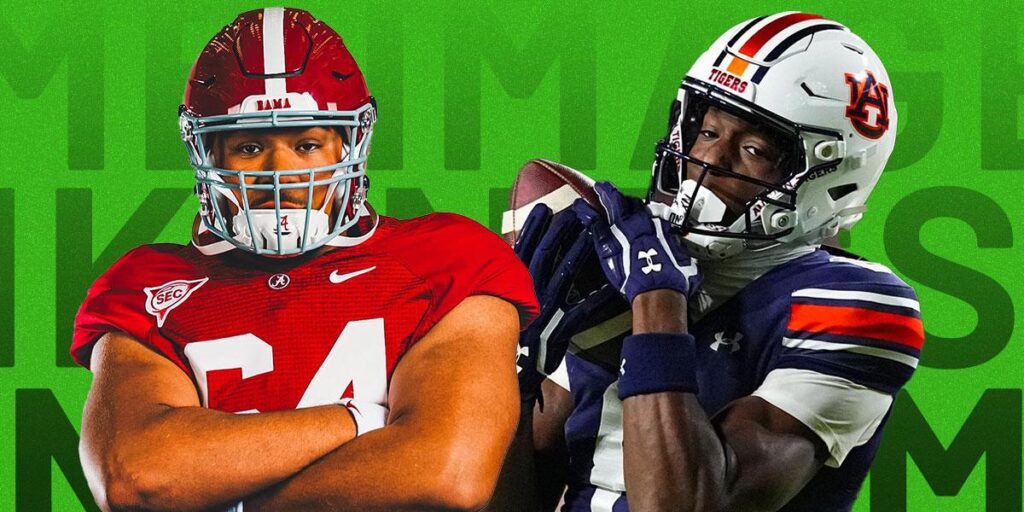College sports have grown into a multi-billion-dollar industry, yet they operate under a unique tax-exempt status that has increasingly drawn scrutiny from lawmakers, economists, and the public alike. The Tax Foundation’s latest analysis sheds light on the vast financial landscape of tax-free college athletics, revealing how universities, athletic programs, and related organizations benefit from substantial tax advantages. As debates over athlete compensation and funding priorities intensify, understanding the economic implications of this tax-exempt ecosystem has never been more critical.
The Economic Impact of Tax Exemptions on College Sports Programs
Tax exemptions granted to college sports programs significantly mold the financial landscape of collegiate athletics, creating a complex web of advantages and controversies. Institutions benefit from non-profit status, allowing them to funnel millions of dollars into facilities, coaching salaries, and recruitment without the burden of traditional tax liabilities. This preferential treatment not only fuels the competitiveness of major programs but also generates substantial economic ripple effects in local communities. For example, on game days, surrounding businesses see boosted revenue from increased foot traffic, often justifying municipal support for stadium expansions and related infrastructure projects.
However, the fiscal benefits are not evenly distributed, raising concerns about equity and transparency. Smaller programs frequently struggle to keep pace due to limited access to lucrative broadcasting deals or sponsorships, despite sharing the same tax-exempt privileges. Below is a snapshot of how tax exemptions affect financial flows within college sports ecosystems:
| Financial Element | With Tax Exemption | Without Tax Exemption |
|---|---|---|
| Revenue Reinvestment | Higher facility & program investments | Limited growth potential |
| Community Impact | Boosts local economy via tourism & events | Less economic stimulus |
| Operational Costs | Lower due to tax savings | Increased expenses |
- Tax-free status enables aggressive spending on athletic program enhancements.
- Disparities widen as revenue streams concentrate among top-tier programs.
- Calls grow louder for reforming the tax framework to ensure fairer competition.
How Tax-Free Status Shapes Recruitment and Revenue Generation
Universities leverage their tax-exempt status to funnel unprecedented resources into athletic programs, intensifying their ability to recruit top talent. Without the burden of federal income taxes, schools can allocate more funds towards state-of-the-art training facilities, lucrative coaching contracts, and extensive scouting networks. This financial flexibility creates a competitive recruiting environment where institutions compete aggressively to secure high-profile athletes, often blurring the lines between amateurism and professionalism.
Key impacts of this tax-free advantage include:
- Enhanced marketing and branding strategies that elevate program visibility.
- Increased revenue generation via sponsorships and lucrative broadcasting deals.
- Ability to offer comprehensive support services, from nutrition to academic tutoring, attracting elite prospects.
| Revenue Source | Estimated Annual Value | Tax Status Impact | |||||||||||||||||||||||||||||||||||
|---|---|---|---|---|---|---|---|---|---|---|---|---|---|---|---|---|---|---|---|---|---|---|---|---|---|---|---|---|---|---|---|---|---|---|---|---|---|
| Broadcast Rights | $1.2 billion+ | Tax-exempt reinvestment | |||||||||||||||||||||||||||||||||||
| Merchandise Sales | $300 million | No federal income tax | |||||||||||||||||||||||||||||||||||
| Sponsorship Deals | $450 million | Evaluating the Fairness of Tax Breaks for Major College Athletic Conferences
Tax exemptions granted to major college athletic conferences have long been a subject of scrutiny. Critics argue that these tax breaks enable billion-dollar programs to operate with minimal financial accountability, often overshadowing academic priorities. The financial landscape of college sports is dominated by a handful of conferences benefiting from favorable tax codes, creating an environment where the economic advantages often fail to trickle down equitably. Particularly, conferences in Division I generate substantial revenue through broadcasting rights, merchandise sales, and ticketing, yet maintain non-profit status that restricts transparency and oversight. When evaluating fairness, several factors come into play:
Policy Recommendations for Transparency and Accountability in College Sports FundingTo restore public trust and ensure the ethical management of college sports funding, implementing clear and enforceable transparency measures is vital. Institutions should be mandated to publish detailed financial reports that break down revenue sources, including donations, sponsorships, and ticket sales, alongside expenditures such as coaching salaries, facilities, and student-athlete support. Establishing independent oversight bodies can further guarantee these disclosures are accurate and comprehensive, minimizing conflicts of interest and financial mismanagement. Moreover, enhancing accountability requires stricter regulation of tax-exempt statuses granted to athletic programs, coupled with standardized reporting requirements across all colleges. Funding allocations must prioritize student-athlete welfare, academic services, and community engagement rather than solely focusing on revenue generation. The table below outlines key policy actions recommended for effective reform:
Key TakeawaysAs the debate over the role of college sports in higher education continues, the financial implications of tax-exempt status remain a critical point of scrutiny. The Tax Foundation’s analysis sheds light on the complex intersection of athletics, education, and taxation, prompting policymakers and stakeholders to reconsider how these lucrative programs fit within the broader public interest. Moving forward, greater transparency and accountability will be essential in ensuring that the benefits of tax-free college sports align with their intended educational mission.
Add A Comment
|





